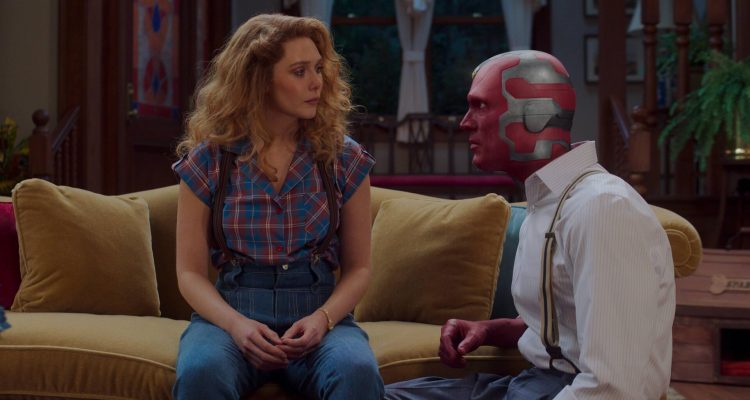The first week-by-week series on Disney+ for Marvel Studios has made quite a bit of noise the past few weeks. It seems like, with every episode, the hype around “WandaVision” has grown so much that the creator and director of the series thought fans would be disappointed by the finale because of rampant speculation and theories. There’s no doubt that “WandaVision” has won over fans everywhere, but my relationship with the show is a little more complicated than that.
I started it off absolutely loving “WandaVision.” The first two episodes that heavily leaned into the tropes of 1950s and 60s television were a complete delight and strange to the point that I thought this was a big swing for Marvel. I really thought that this would be taken in a unique direction down the line. Unfortunately for me, I thought every following episode started to steer into safe Marvel territory. Ideas were introduced episode-to-episode that screamed big implications for the story but were ultimately never explored. Now, after the finale, I can finally form an opinion on the series as a whole after not being entirely sold on it. “WandaVision” is a pretty solid Marvel fare but could have been something far more special.
My favorite parts of “WandaVision” are when it takes bold risks outside the normal Marvel movie standard. Marvel characters running around in black and white with a laugh track in an “I Love Lucy” style sitcom? I was sold from minute one because it is something different. The final moments of episode three were also a highlight because it felt like the show was embracing how wild its concept could be. These types of big swings are what Marvel desperately needs to avoid becoming stale in the near future. The decade hopping sitcoms from episode to episode was fun and well-executed. It was definitely an odd choice but is revealed to serve a purpose later in the story and connects the dots very well.
The real stars of the show are Elizabeth Olsen and Paul Bettany as Wanda and Vision, respectively. They’re the pair that makes this story’s core themes, loss and grief come through to the surface. Their chemistry carries the show through the first two or three episodes that some may not have liked due to lack of a clear narrative. It is safe to say that any time these two are on screen, it is absolute fireworks, Olsen especially. Episodes eight and nine dig deep into Wanda’s past and psyche, which allows Olsen to shine in some of the Marvel Cinematic Universe’s most powerful emotional moments. In terms of exploring a character’s headspace, I love what Marvel has chosen to do with Wanda in this series and for the future.
My first issue with “WandaVision” is my general issue with Marvel as a whole now. The way I can describe this problem with the state of the franchise is its somehow ambiguous predictability. The best example I can use to describe this phenomenon is “Avengers Endgame,” where every fan in the world predicted how the film would play out. While I liked the movie, I left the theater thinking, “there is quite literally no other way for this story to have concluded.”
“WandaVision” struggles in a similar way. The first three episodes threw me for a loop since I thought I knew where the story was going, but once I watched episode four, all of my suspicions and ideas were confirmed. Lo and behold, aside from a few minor details that weren’t big players in the overall narrative, I was pretty much on the money. This dampened my viewing experience because this show treads a lot of water at times. Episodes six and seven especially did not do a lot for me in terms of progressing the plot and character, but knowing what direction the story is going does not help the intrigue of these slower episodes.
That being said, some episodes just didn’t do it for me in terms of progressing story and character, namely episodes 6 and 7. There is a lot mentioned and set up in these episodes that either is not resolved or explained in horrible ways. One character especially that screamed the loudest and bore the most interesting implications for the MCU was completely wasted in the final episode. There are also other characters mentioned throughout the series by side characters that never appear. I’ve seen many excuses for this series in this regard by saying it is just set up for the future of the MCU, but the story at hand should always be most important.
“WandaVision” has a strong emotional core and powerful themes that I wish weren’t bogged down by seemingly unimportant material.
“WandaVision” was a show that I was looking forward to, and it was definitely a solid entry to the ever-growing MCU. Despite its shortcomings in a strong, consistent narrative, the series makes up for its strong core themes and knockout performances. I expected a little more when it came to bigger swings and bolder choices, but “WandaVision” connects more than it doesn’t and is definitely worth your time if you’re a Marvel fan. Also, Kathryn Hahn is a rockstar and deserves roles in everything.
Grade: B


Leave a Reply